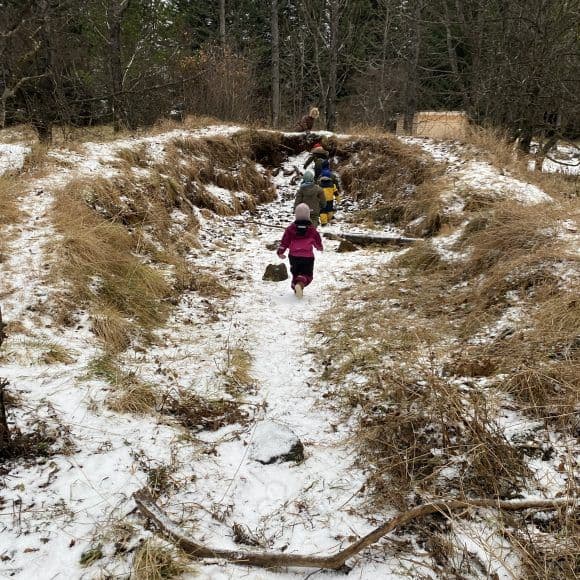In The Field
Practice
Research
‘Stretched time’ in early childhood education and care

FDC-Friendly
Contributed Content
Jul 29, 2024
Save
Sometimes a question can stay with you: ‘Are we making the best use of children’s time?’ This was Chloe Kerr’s question after an In Service day in Shetland last year about slow pedagogies. Chloe’s question is key to reconsidering the relationship with time in early childhood education and care (ECEC).
This has been the focus of my two-year research study, Slow Knowledge and the Unhurried Child, funded by the Froebel Trust (Clark, 2020; Clark, 2023).Strange things happened to time during this study, which began in January 2020 and took place during the pandemic. Time froze for some of us and speeded up for others in unexpected and sometimes frightening ways. In some contexts, young children experienced more time to play in small groups whilst others remained isolated and shut at home indoors.
Time is not often made explicit in discussions about working with young children, but is fundamental to how young children and educators experience everyday lives in ECEC.
What period of the day feels most rushed? How long do children spend waiting? How often is children’s play interrupted? Questions about spaces and places and materials have been discussed in depth across the decades but less attention has been given to these temporal dimensions. Thinking about time is not limited to questions about how we work with the clock but also opens up broader questions about what is seen as of value.
Harriet Cuffaro, an American early childhood educator and researcher engages with
Non-fragmented stretches of time not only give children the opportunity for more in-depth involvement and experimentation, but also allow room for situations to evolve, to become meaningful in a way that they may not be at first glance. Within this stretched time, greater possibility exists for making choices and for experiencing the consequences of one’s doingCuffaro’s concept of ‘stretched time’ can be applied to many encounters and to different timescales. Young children may experience ‘stretched time’ when, for example, engaging with a story is allowed to develop over weeks and sometimes months. Slow moments might be created during mealtimes where time for conversations and sharing humour are valued. This could also be experienced in environments where educators feel they have ‘permission’ to be with children in their play outdoors without the constant need to watch the clock. Some materials such as blocks and other loose parts can support extended moments of ‘stretched time’ which can lead to unexpected creations. These examples of ‘stretched time’ may be understood as features of a Slow pedagogy. Four key themes emerged from my study of such an approach: prioritising opportunities to ‘be with’ and to ‘dive deep’ with children; for children to have the freedom to ‘go off track’, and for educators and ECEC systems to hold on to the longer view (Clark, 2023: 37–51).’(1995:42).
How can there be more opportunities for young children and educators to experience such a learning culture? This complex question requires careful reflection and debate especially during a period of intense pressure in ECEC on staff recruitment and retention. Perhaps finding ways of reclaiming a less hurried, deeper approach to early childhood pedagogy and practice can be part of the way forward?
References
Clark, A. (2020) Towards a listening ECEC system: Valuing slow pedagogy and slow knowledge. In P. Moss & C. Cameron (Eds.), Transforming early childhood in England (pp.134–150). UCL Press. https://www.uclpress.co.uk/products/128464Clark, A. (2023) Slow knowledge and the unhurried child: time for slow pedagogies in early childhood education. London: Routledge.Cuffaro, H. (1995) Experimenting with the world: John Dewey and the early childhood classroom. New York: Teachers College Press.
Acknowledgements
With thanks to Rauðhóll playschool in Iceland for the use of this photograph. Rauðhóll is one of four playschools involved in Stilla: a Slow pedagogy research study led by the University of Iceland.
Further discussions of Slow pedagogy can be found here on Alison's blog.
This article first appeared on Early Childhood Australia's blog The Spoke and has been reshared here with permission. Find it in its original format here.
Don’t miss a thing
Related Articles



















